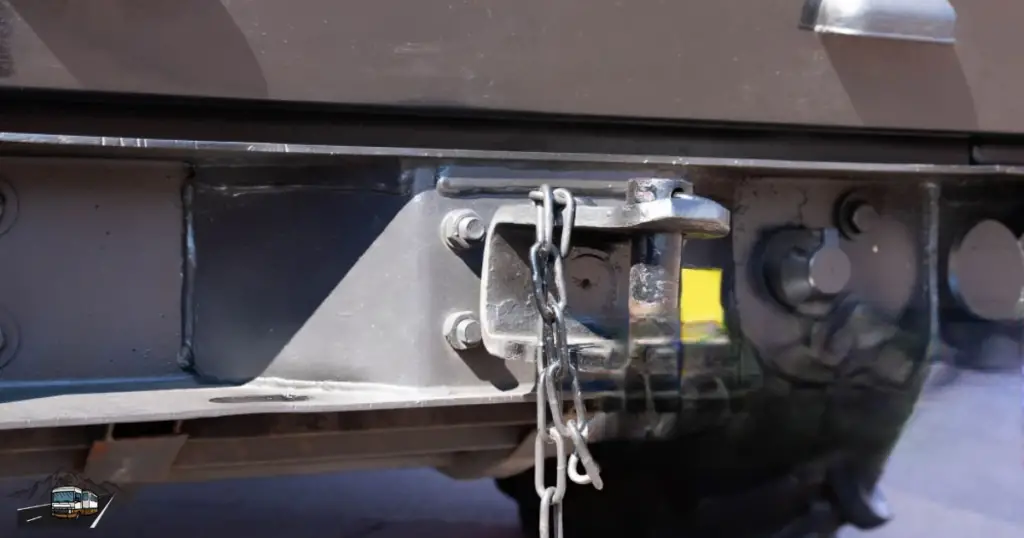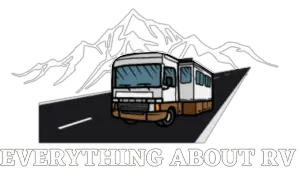I. Introduction
A. Definition of RV Trailers
RV trailers, short for Recreational Vehicle trailers, are versatile mobile homes on wheels, designed to provide a comfortable and convenient living space while allowing travelers to explore the open road. These towable units come in various sizes and configurations, offering a home-away-from-home experience for adventure seekers and road trip enthusiasts.
B. Importance of Safety Measures
When embarking on a journey with an RV trailer in tow, ensuring safety becomes paramount. The sheer size and weight of these trailers demand meticulous attention to safety measures. From secure hitching to proper maintenance, every detail plays a crucial role in creating a secure environment for both the RV owner and fellow road users. In this context, safety measures, including the use of safety chains, emerge as non-negotiable elements in responsible RV ownership.
II. Regulations on RV Trailers
A. Legal Requirements
Navigating the roads with an RV trailer requires more than just a spirit of adventure; it involves adhering to a set of legal requirements. Most jurisdictions have specific regulations in place to ensure the safety of RV owners and those sharing the road. These regulations encompass various aspects of RV travel, from size limitations to lighting requirements. Understanding and complying with these legal obligations is not only essential for avoiding fines but, more importantly, for safeguarding lives on the road.
B. The Role of Safety Chains
Among the myriad of safety regulations for RV trailers, the role of safety chains stands out as a critical component. Safety chains act as a safeguard, providing an additional layer of security in the event of a hitch failure or disconnect between the RV and the trailer. The chains are strategically designed to keep the two entities connected, preventing potential accidents and promoting stability during towing. Understanding how safety chains function and their role in the broader spectrum of RV safety is key to responsible and lawful RV ownership.
III. Purpose of Safety Chains
A. Preventing Accidents
Safety chains play a pivotal role in preventing accidents on the road. In the unpredictable world of travel, where unforeseen circumstances can lead to hitch failures or disconnections, safety chains act as a crucial safety net. By keeping the RV connected to its trailer, even in challenging situations, these chains serve as a vital link that can prevent catastrophic accidents. The importance of this preventive measure cannot be overstated, as it contributes significantly to the overall safety of both the RV owner and other road users.
B. Ensuring Stability During Towing
Beyond accident prevention, safety chains contribute substantially to the overall stability of the towing experience. Towing an RV trailer involves navigating varying terrains and potential challenges like crosswinds or sudden stops. Safety chains help distribute weight properly, reducing sway and ensuring a controlled towing experience. This stability not only enhances the safety of the journey but also contributes to a smoother and more enjoyable ride for those behind the wheel. Understanding the dual role of safety chains in accident prevention and towing stability reinforces their importance in the world of RV travel.
IV. Types of Safety Chains
A. Standard Safety Chains
Standard safety chains, typically crafted from durable materials such as steel, form the backbone of RV safety. These chains offer a reliable connection between the RV and the trailer, ensuring a secure link during travel. RV owners must understand the weight capacity of these standard chains, choosing an appropriate size to match the specific demands of their trailer.
B. High-Strength Materials
Recent advancements in materials technology have given rise to high-strength safety chains. These chains go beyond the conventional, providing enhanced durability and reliability. Crafted from advanced materials, they offer an extra layer of security for RV owners who prioritize the utmost safety during their journeys.
C. Weight Considerations
Selecting safety chains that align with the weight of the trailer is a critical consideration. Overlooking this aspect could compromise the effectiveness of the chains, potentially leading to safety hazards on the road. RV enthusiasts must take into account the weight specifications of both their trailers and the safety chains to ensure optimal performance.
V. Installation and Maintenance
A. Proper Attachment Methods
The effectiveness of safety chains hinges on their proper installation. Following the manufacturer’s guidelines for attachment methods is paramount. RV owners should ensure a secure connection between the RV and the trailer, using appropriate hardware. This careful attention to detail during installation lays the foundation for a reliable safety system.
B. Regular Inspections and Adjustments
Installing safety chains is not a one-and-done task; regular inspections and adjustments are crucial for maintaining optimal safety levels. RV owners should incorporate a routine checkup into their maintenance schedule, looking for signs of wear, rust, or any damage to the chains. Timely adjustments can address any issues, ensuring that the safety chains remain robust and reliable throughout the journey.
VI. Common Misconceptions
A. Assuming Safety Chains Are Optional
One common misconception among RV enthusiasts is the belief that safety chains are optional accessories rather than essential safety features. This misconception could lead some to forego the use of safety chains, putting themselves and others on the road at unnecessary risk. Dispelling this myth is crucial, emphasizing that safety chains are not merely recommendations but often legal requirements for responsible RV towing.
B. Underestimating Their Significance
The significance of safety chains can be underestimated, especially by those new to RV travel. Some may perceive them as an added hassle or an unnecessary precaution. However, understanding the pivotal role safety chains play in preventing accidents and ensuring stability during towing is key. Educating RV owners about the tangible benefits of safety chains can lead to a greater appreciation for their vital role in safe and enjoyable RV journeys.
VII. Accidents and Consequences
A. Real-Life Scenarios
Tragic incidents involving RV trailer accidents serve as powerful reminders of the critical importance of safety chains. Real-life stories underscore the potential consequences of neglecting this essential safety measure. From highway mishaps to unexpected detaches, these scenarios highlight the life-saving role safety chains can play in mitigating the severity of accidents and protecting lives on the road.
B. Legal Repercussions for Non-Compliance
Beyond personal safety, there are legal implications for not complying with safety chain requirements. RV owners who neglect or disregard safety regulations may face fines, penalties, and potential liability for damages in the event of an accident. Understanding the legal repercussions emphasizes the non-negotiable nature of safety chain compliance, reinforcing the need for RV owners to prioritize safety on their journeys.
VIII. Advancements in Safety Technology
A. Innovations in RV Safety
The world of RV travel is not immune to technological advancements, and safety is no exception. Innovations in RV safety technology have paved the way for enhanced security on the road. From automatic braking systems to integrated sway control, these innovations aim to provide RV owners with cutting-edge tools to navigate the highways with confidence and peace of mind.
B. Integration of Advanced Safety Features
RVs equipped with advanced safety features often work in tandem with traditional safety measures, including safety chains. The integration of these advanced features creates a comprehensive safety net, reducing the risk of accidents. Smart technologies that monitor chain integrity in real-time and respond to changing road conditions further contribute to the evolving landscape of RV safety.
IX. Expert Recommendations
A. Insights from RV Industry Professionals
Drawing insights from seasoned professionals in the RV industry sheds light on the critical role safety chains play in responsible RV ownership. These experts emphasize the non-negotiable nature of safety chains and stress the importance of adhering to recommended guidelines. Their collective knowledge serves as a valuable resource for RV enthusiasts looking to enhance their understanding of safety measures on the road.
B. Best Practices for Safety Chain Usage
Expert recommendations extend beyond mere installation; they encompass best practices for ongoing safety chain usage. Regular maintenance, proper sizing, and ensuring a secure attachment are key elements of these best practices. Following expert guidance ensures that safety chains function as intended, providing an added layer of confidence for RV owners as they embark on their journeys.
X. Safety Chain Market Trends
A. Growing Demand
The awareness of RV safety has fueled a growing demand for high-quality safety chains in the market. RV owners, now more than ever, recognize the indispensable role that safety chains play in ensuring a secure towing experience. This surge in awareness has led to an uptick in demand, prompting manufacturers to innovate and cater to the evolving needs of safety-conscious RV enthusiasts.
B. Emerging Technologies
The safety chain market is not immune to the wave of emerging technologies. From materials with increased durability to smart technologies that monitor chain integrity, the industry is evolving to provide cutting-edge solutions. These emerging technologies aim to elevate the effectiveness of safety chains, contributing to a safer and more technologically advanced landscape for RV travel.
XI. User Experiences
A. Testimonials on the Importance of Safety Chains
Real-world experiences from RV owners serve as powerful testimonials on the importance of safety chains. These accounts highlight instances where safety chains have prevented accidents, saved lives, and reinforced the significance of prioritizing safety on the road. Hearing directly from fellow RV enthusiasts underscores the tangible impact safety chains can have on the overall safety of RV journeys.
B. Impact on Overall Towing Experience
Beyond safety, user experiences emphasize the positive impact safety chains have on the overall towing experience. Enhanced stability, reduced sway, and increased confidence contribute to a more enjoyable and stress-free journey for RV owners. Understanding the real, day-to-day impact of safety chains fosters a deeper appreciation for these essential safety measures in the RV community.
XII. Future Outlook
A. Anticipated Regulations
As the RV industry continues to evolve, the future outlook anticipates a heightened focus on safety regulations. Authorities may introduce more stringent measures to address the dynamic nature of RV travel. Anticipated regulations could encompass a more detailed framework for safety chain usage, reinforcing the commitment to creating a safer environment for all road users. RV enthusiasts should stay informed about these potential changes to ensure continued compliance with evolving safety standards.
B. Technological Advancements
The future of safety chains lies in continued technological advancements. Innovations in materials, coupled with smart technologies, are expected to redefine the landscape of safety measures for RV trailers. From self-monitoring chains to integrated safety systems, technological advancements aim to provide RV owners with state-of-the-art tools for a safer and more technologically advanced towing experience. Keeping abreast of these advancements will be crucial for those seeking to stay at the forefront of RV safety.
Conclusion
In conclusion, safety chains stand as indispensable guardians in the realm of RV travel, acting as both preventers of accidents and guarantors of towing stability. From standard chains to high-strength materials, their significance goes beyond mere accessories, forming a crucial part of responsible RV ownership. As the demand for enhanced safety grows, technological advancements, including smart monitoring systems, shape the future of safety chains. Looking ahead, anticipated regulations underscore the commitment to evolving safety standards. The narratives of real-life experiences and testimonials echo the vital role safety chains play in averting disasters and enhancing overall towing experiences. As we navigate the roads of tomorrow, let’s not only appreciate but comply with the importance of safety chains, fostering a culture that prioritizes security, stability, and the shared joy of the open road.











